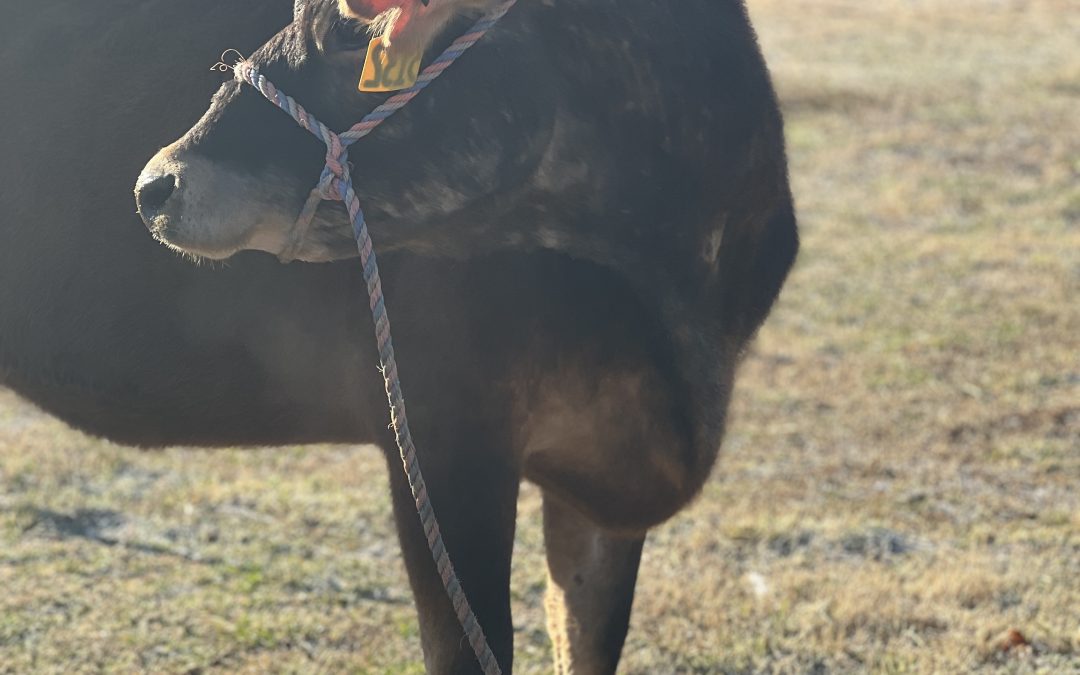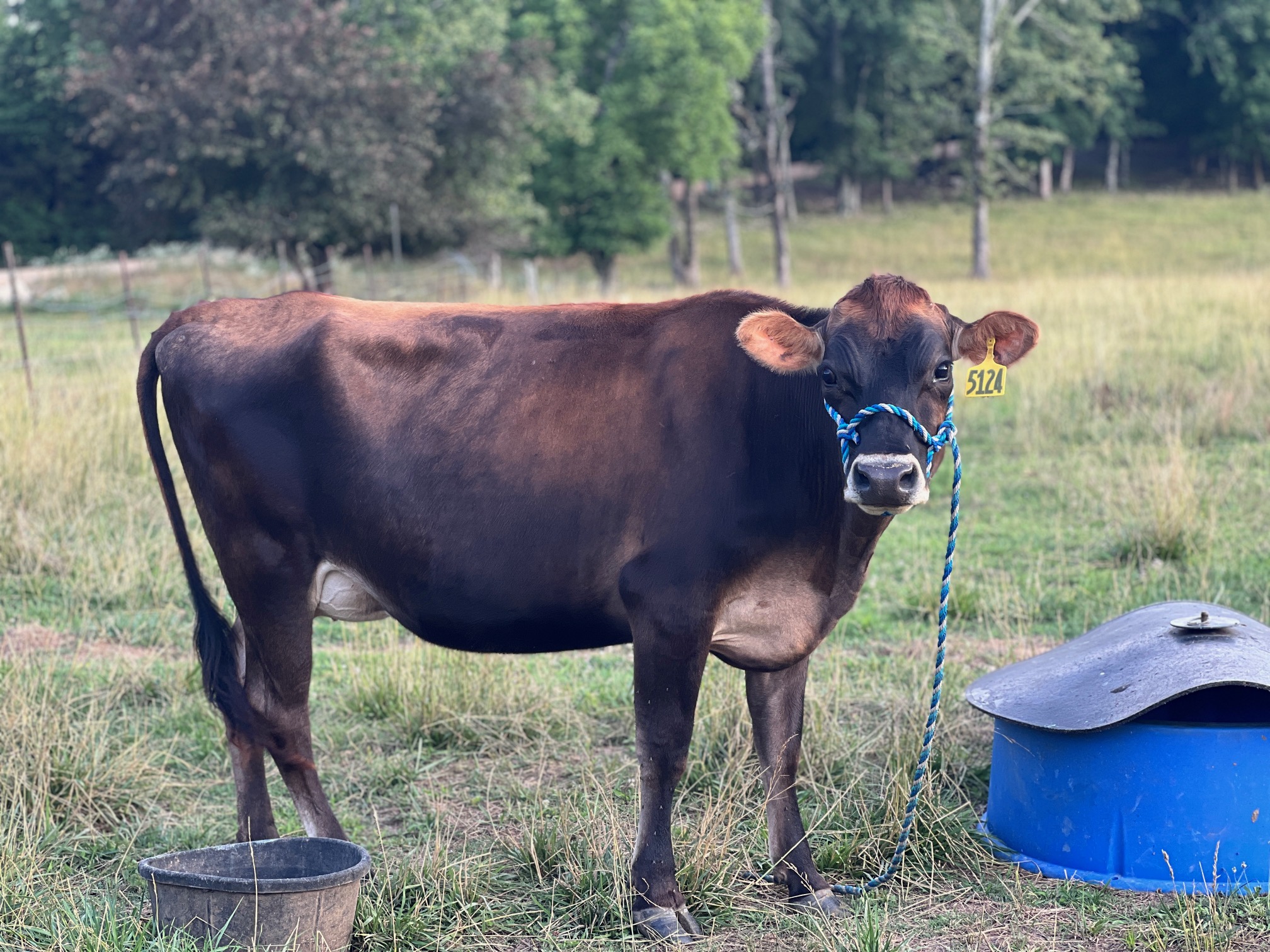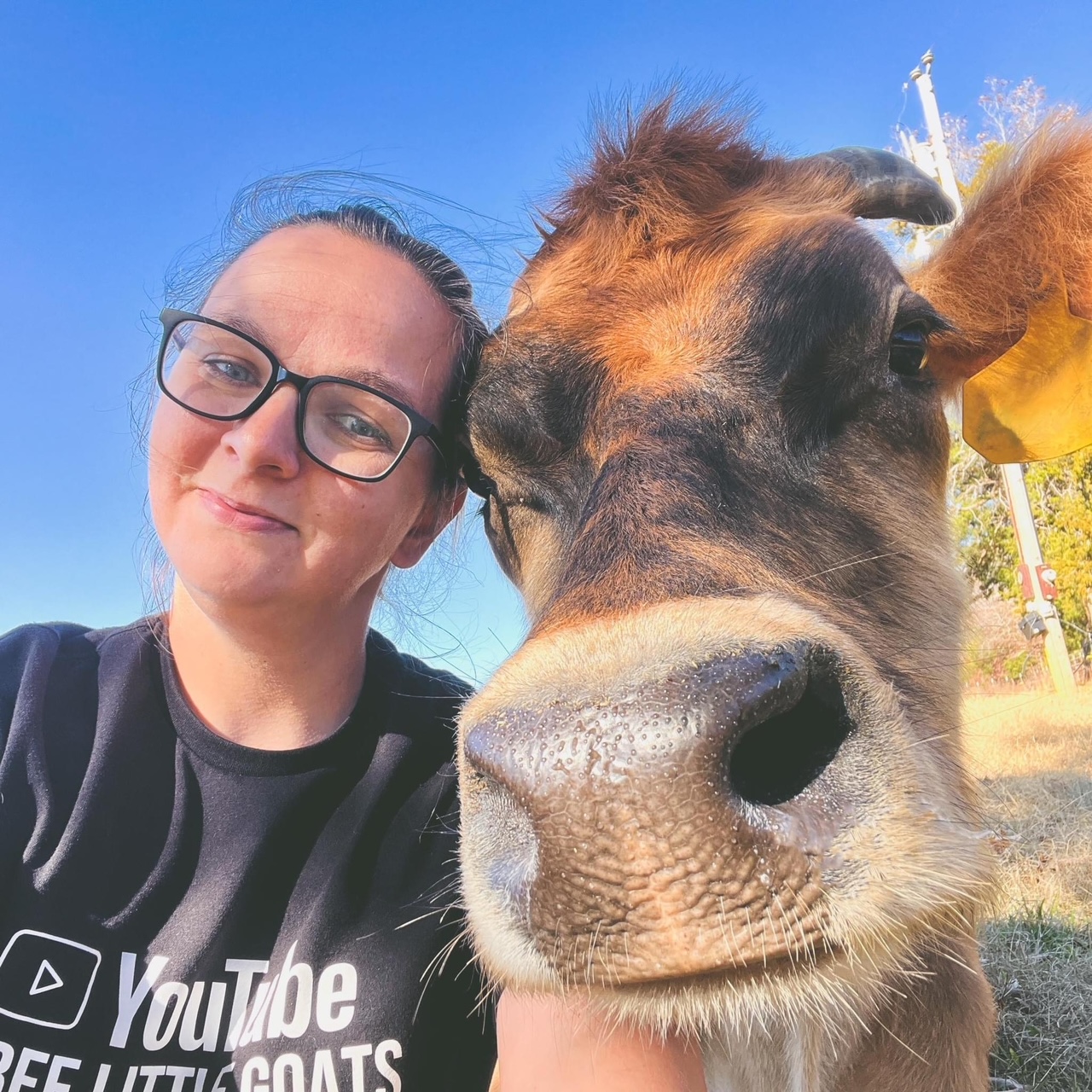
by Jamie Satterwaite | Jul 24, 2024 | Cows
Raising dairy cows can be fun, or a nightmare… and it all depends on the cow. We have had cows that came to us halter broke, and more than a few that have never even saw a halter, let alone had one on. I have also found that not all cows even need to be halter broke, some of our girls will follow you to the end of the world and back, without any coaxing. Learning how your cow reacts to difference situations is key to getting them halter broke, without stressing you, or your cow, out.
(more…)

by Jamie Satterwaite | Jul 5, 2023 | Cows
Getting a milk cow for your homestead is both very exciting, but also can be a little bit stressful. There are so many variables that can make the experience either great or horrible. Finding the right cow for your family can make the process go smoothly which will be less stressful for you and your new milk cow. If you can find a cow that is already being raised similar to how you plan on raising them it is a lot better for you and the cow. So, here is what to ask before you buy your first milk cow!
(more…)
Getting a milk cow for your homestead is both very exciting, but also can be a little bit stressful. There are so many variables that can make the experience either great or horrible. Finding the right cow for your family can make the process go smoothly which will be less stressful for you and your new milk cow. If you can find a cow that is already being raised similar to how you plan on raising them it is a lot better for you and the cow. So, here is what to ask before you buy your first milk cow!
(more…)

by Jamie Satterwaite | Jun 13, 2023 | Cows
When looking for a raw milk farmer, there are a few questions that you should always ask. While raw milk is relatively safe, make sure your dairy farmer is taking the right precautions to ensure it is as safe as possible. If a farmer can’t answer these questions or chooses not to answer, that should be a red flag.
(more…)



